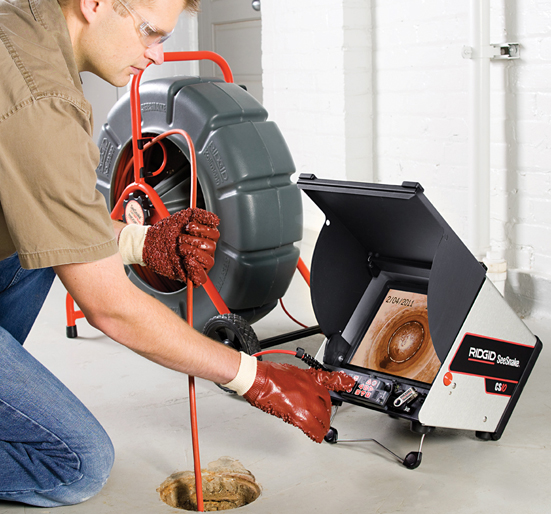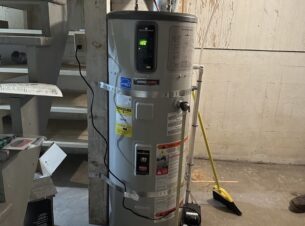Running a small business comes with many concerns and worries. Outside of the usual issues, your troubles multiply when you need to purchase equipment. Your business can only operate with the equipment, so it must be functional at all times. Whether you’re a plumber, a gas engineer or you make bespoke items by hand; you need to have the right equipment with you at all times.
It’s easy to make mistakes when procuring business equipment – especially if this is your first time doing so. This blog post will include some of the crucial things to consider before buying anything. We’ll offer tips along the way, as well as mention a few mistakes you must avoid.

Buy equipment that’s fit for commercial use
Speaking of mistakes, buying personal equipment is one of the biggest you could make. Imagine your business makes clothes or deals with fabric and you need a sewing machine. A quick Google will show you loads of machines for personal use – and they’ll be very affordable.
Your business brain kicks in and sees great savings, so you go ahead and purchase the machine. Unfortunately, it breaks after a few days or weeks of regular use. Why? Because it’s not designed for commercial purposes! You need a heavy-duty sewing machine that’s specifically made for business use. It’s crafted to withstand multiple uses a day and can handle high volumes of fabrics.
The same applies to other equipment for other businesses – if there are commercial options available, you should opt for them over personal ones. It helps to avoid situations where you’re wasting money on equipment that keeps breaking.
Find options from trusted brands
Similarly, equipment can break when you don’t buy from good brands. This sounds like a snooty thing to say, but buying from big brands is important when you run a business. You need your equipment to stand the test of time and last the daily rigors of your job.
For example, if you operate a plumbing business, you need to get your hands on power tools and other plumbing equipment from some of the biggest brands in the industry. This includes the likes of DeWalt or Milwaukee, both of which have excellent reputations and are known for making tools/equipment that last almost forever.
If you buy from an unknown brand, how can you guarantee the quality? You’re acting as a test subject and you can’t afford to waste money as a small business. Plus, using branded equipment makes your business look better. If you rock up to a customer’s house and they see well-known names on all of your tools, it makes them feel better about their decision. They’re confident that you know what you’re doing because your equipment looks fantastic.
Make sure there’s a warranty
When buying large equipment that costs a lot of money, you must get a warranty on it. A warranty is a layer of protection that kicks in when there’s an issue with the product. Let’s say you have a contracting business and you go around building houses or performing home renovations. Part of your job means you need big cement mixers or other large tools – possibly even some mobile generators.
What happens if these tools break during the job? It throws the whole schedule out as you need to find a replacement. You can act fast, but that doesn’t detract from the fact that you’re spending loads of money you didn’t intend to spend. It eats into your cash flow and can cause serious financial implications.
If the equipment is under warranty, this is no longer a problem. The warranty can cover damages and faults, meaning the manufacturer or supplier has to pay for repairs or replacements. You’re financially covered in emergency scenarios, so your cash flow won’t be hit as badly. So, be 100% certain your equipment has a warranty and consider purchasing an extended warranty to gain protection for longer.
Assess any compatibility issues
This tip is critical when you have certain systems in place throughout your small business. You must ensure your new equipment is compatible with these systems. Can it easily integrate with everything else you’ve got going on?
One example of this is payment equipment. You run a small business that takes payments in person. It could be a retail store, coffee shop, or even a door-to-door service business. Regardless, you need payment equipment to process in-person payments. This will typically mean you have some sort of card reader for people to tap, swipe, or insert their card.
In this specific scenario, you must ensure the card reader is compatible with other business systems. For instance, can you automatically integrate all payments from the reader into your accounting software? This would mean any payment immediately gets uploaded to your books, so it’s easier for you to track everything. If it’s not compatible, you’re adding another step to the bookkeeping process by needing to take information from the reader and transfer it to your accounting software.
As you can imagine, this gets frustrating very quickly. There are other examples of incompatibility as well, which is why you need to assess if your equipment will fit your business needs.
Check reviews and testimonials
Before buying anything for your business, you must check the reviews and testimonials. Are other people happy with the equipment you’re looking to purchase?
Consider what the reviews say about usability and durability. Is the equipment easy for them to use and does it last for a long time? If all the testimonials praise these features, you know you’re buying something excellent. Being confident that you’re getting something with great usability and durability makes it worth spending more money on the equipment. Sometimes, the cheapest options don’t represent the best value for money – it’s smarter to buy things that last so they are replaced less often.
When there are no reviews for equipment, it’s a big red flag. Also, going back to our first point about commercial use, you must check the reviews are from fellow professionals. If you’re buying wire strippers for your electrician business, you need to know what fellow electricians think about the products, not whether John found the wire strippers good for his one DIY task.
See if leasing is a better option
Buying business equipment isn’t always the best option for every company in every situation. Leasing could be a better choice depending on the circumstances. The key thing to ponder is whether you’ll need the equipment all the time.
Are you going to use it every day? Looking back at our first example again, a business that makes clothes will need a sewing machine every day. A plumber will also need their toolkit – but will contractors always need diggers and big excavation machines?
No! You may only need this equipment for specific jobs, which is when it makes sense to lease rather than buy. Leasing saves money in this situation as you’re only paying to rent the equipment for your job. If you buy something you’ll use sporadically, it spends half the time collecting dust and burning a hole in your budget! Don’t waste money on equipment you won’t need all the time – only buy stuff that will get used enough to be worth owning.
In total, we’ve given you six things to consider when buying equipment for your small business. Make sure it’s suitable for commercial use, buy items from trusted brands, check for warranties to be protected, make sure the equipment is compatible with your business processes, read through all reviews, and see if leasing is a better option.




Join the conversation: